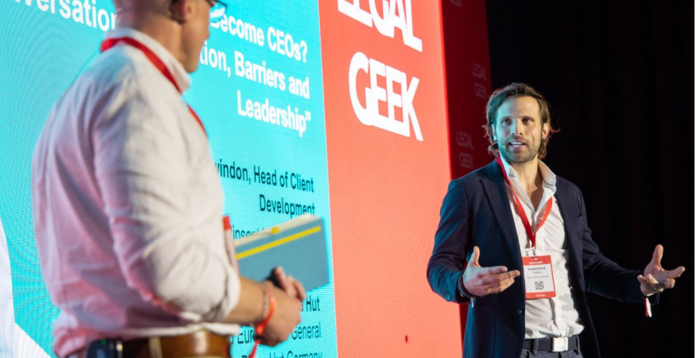Why We’re Hearing a Lot More About ‘Purpose’
We’re hearing a lot more these days about ‘purpose’ and organisations evolving to become ‘purpose-led’.
In recent years, calls for organisations to become purpose-led have been growing louder by the day with stakeholders across the spectrum – including governments, workforces, customers and investors – giving momentum to its inexorable rise.
It follows growing recognition that, with the world facing formidable problems like Covid-19 and climate change, organisations should be part of the solution, not a contributor to the world’s problems.
Indeed, closer to home, our own firm Pinsent Masons have worked hard to reflect on our own activities and ambitions to try distill this into a purpose beyond simply seeking profits or growth. Our Managing partner, Richard Foley has discussed this recently as a podcast which I highly recommend you listen to.
However, organisations embracing a purpose-led strategy do not come without cynicism and skepticism. Recently, the Financial Times published an article which derided purpose-statements and corporate values because “too many (companies) struggle to match reality”.
Some cynicism and skepticism is understandable, based on the experiences of organisations which have historically struggled to reconcile their purpose and values with their actions and behaviour. But, much of this cynicism and skepticism is based on experiences when purpose was a social imperative, not a commercial imperative.
That change has largely taken place very recently, compounded by the Covid-19 pandemic, but has nonetheless been fueled by a series of events over the preceding fifteen years.
Corporate Purpose: A timeline
2006 The first B Corporation is launched
The B Corporation certification seeks to balance purpose and profit by legally requiring certified B Corporations “to consider the impact of their decisions on their workers, customers, suppliers, community, and the environment”. Initially, the certification enticed small and medium-sized businesses but today counts 3,790 companies in 74 countries including multi-national companies like Danone.
2008 Global financial crisis
The global financial crisis requires extraordinary levels of global cooperation and coordination to contain a banking crisis on a global-scale that threatens economic and political stability and inflicts economic pain all around the world. In 2018, ten years after the crisis began, the International Monetary Fund found during a study of 180 countries that about 85% of those countries who experienced a banking crisis, and around 60% of countries who didn’t experience a banking crisis, were still operating at output levels below pre-crisis trends but that the impact of the crisis went much deeper affecting migration, income inequality and even fertility rates.
2015 The Paris Agreement
At the climax of the 2015 UN Climate Change Conference (COP21) in Paris, 196 state parties adopt the Paris Agreement which is a legally binding international treaty on climate change with its goal being to “limit global warming to well below 2, preferably to 1.5 degrees Celsius, compared to pre-industrial levels”.
2018 The world’s largest investor encourages CEOs to focus on purpose
Larry Fink – the CEO of BlackRock, the world’s largest investment manager with nearly $6 trillion in assets under management at the time – devotes his annual letter to CEOs to purpose highlighting “society is demanding that companies, both public and private, serve a social purpose”. He goes on to say that “without a sense of purpose, no company, either public or private, can achieve its full potential”. In a follow up letter to BlackRock’s clients, Larry Fink warns “companies, investors, and governments must prepare for a significant reallocation of capital” and that the investment manager will now assess ESG measure (Environmental, Social and Governance) “with the same rigor that it analyses traditional measures” whilst encouraging companies to disclose their climate risk and inferring BlackRock will vote against a company’s management if they are deemed to have made insufficient progress to account for those risks.
2019 A new Statement on the Purpose of a Corporation
The Business Roundtable – an association comprised of chief executive officers from many of America’s largest companies and chaired by Jamie Dimon, Chairman and CEO of JPMorgan Chase & Co – release a new Statement on the Purpose of a Corporation which was “signed by 181 CEOs who commit to lead their companies for the benefit of all stakeholders – customers, employees, suppliers, communities and shareholders”. Whereas, the Business Roundtable previously “endorsed principles of shareholder primacy – that corporations exist principally to serve shareholders”.
The Increasing Importance of Purpose
Prior to 2008, it could be argued it was socially imperative for organisations to be more responsible. But, in response to events such as the 2008 global financial crisis, the 2015 Paris Agreement, Larry Fink’s 2018 letter to CEOs, the adoption of a new Statement on the Purpose of a Corporation by the Business Roundtable in 2019 and, now, a global pandemic, it has arguably become commercially imperative for organisations to do so.
In the coming years, the pressure and scrutiny being exerted by stakeholders is likely to manifest in different ways but will likely mean purpose and values will have an ever-greater influence over which organisations people, and other organisations, choose to work for, partner with, buy from or sell to.
But for Paul Polman, the former CEO of Unilever who led the company when it enacted its own purpose-led strategy, the rationale for businesses (and all other types of organisations) operating with a sense of purpose is even simpler: “businesses cannot thrive in a world in which people don’t”.
Latest blogs

From Legal Expert to Strategic Leader: Rebecca Rawson’s Journey Beyond Law
In this latest interview in our in-house legal series, we're joined by Rebecca Rawson, Senior Managing Counsel at MasterCard.

Breaking the Legal Mould: Richard Crabb on Moving from Law to Leadership
In this latest interview in our in-house legal series, we’re joined by Head of Legal and Commercial at NuBreed Hotels.

From Legal Counsel to Market Leader: How Lawrence Grabau Developed His Career
In this latest interview in our in-house legal series, we’re joined by Lawrence Grabau, General Manager, Pizza Hut Germany and former Chief Legal Officer for Pizza Hut UK & Europe